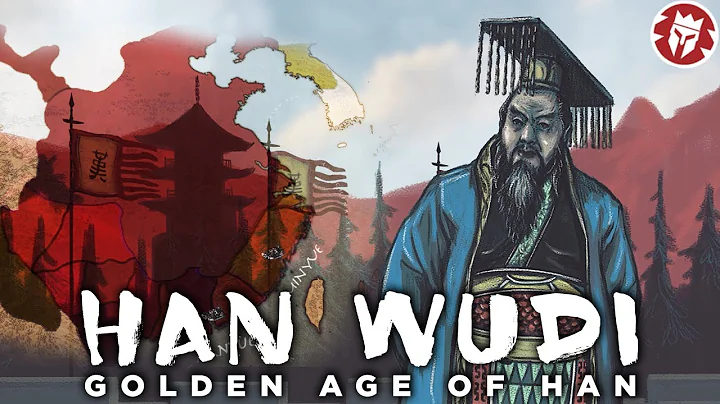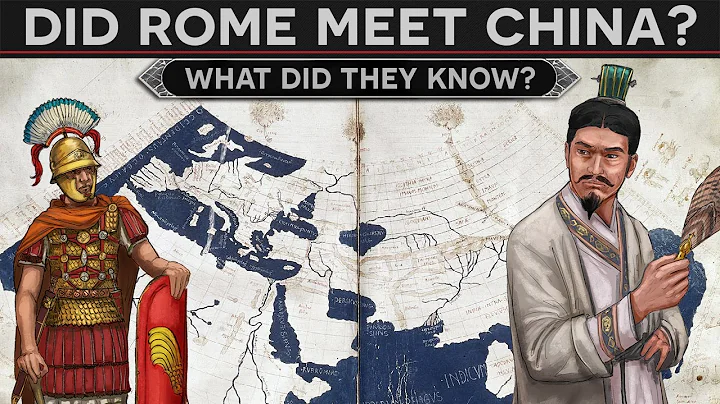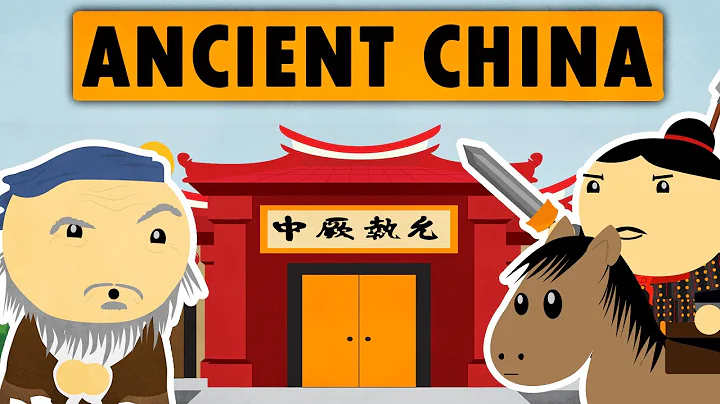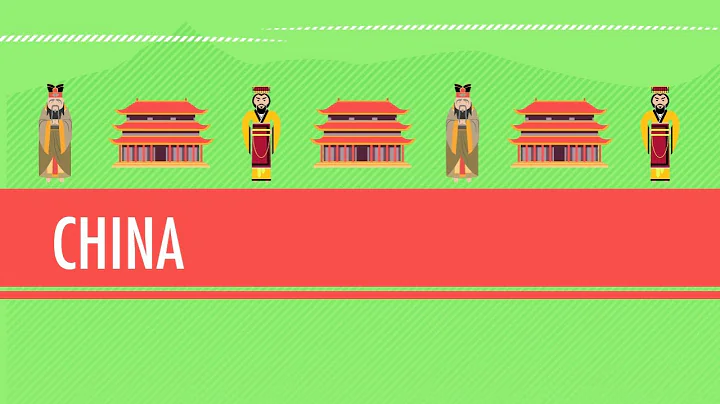There were many types of official positions in ancient China. There were officials who exclusively served the emperors, queens, queen mothers, and others who lived in the palace; there were also management teams dedicated to each prince's and princess's mansion; and more of them were at all levels from the central government to counties. There are countless government officials, ranging from prime ministers to county captains.
- However, due to the constant changes in the names of official officials in each dynasty, and the differences between ancient and modern Chinese, many ancient official names are confusing to modern people, and they do not know what they are for.
Today, the editor will introduce to you some uncommon official names.
Prince Xima
During the Chenghua period of the Ming Dynasty, there was a minister named Yang Shouchen. He was awarded the title Prince Xima because of his meritorious service in participating in the compilation of Yingzong records.
Once, Yang Shouchen went home on leave and passed by the post station to rest. The post manager didn't know what the official position of "horse washing" was, so he asked him: "Your profession is horse washing. How many horses do you wash in a day?" Yang Shouchen answered him: "If you are diligent, wash more, if you are lazy, wash less. There are no hard and fast task requirements."
This matter comes from "Kuaiyuan Daogu" written by Zhang Dai of the Ming Dynasty. It is a joke. But it shows that even ancient people didn’t know much about the job of “horse washing”!

Zhao Shuru "Horse Washing Picture"
In fact, "horse washing" cannot be read as xǐ, but should be read as xiǎn. The original meaning of "Xi Ma" is "Xian Ma", which means to gallop in front of the horse.
"Book of Han: List of Hundred Officials and Officials": Prince Taifu, Shaofu , ancient official. The subordinate officials include the prince's family, officials, concubines, Xianma, and Sheren.
"Book of the Later Han·Hundred Officials Four" original note: When a prince comes out, a straight man should lead the way with authority.
It can be seen from this that Prince Xima is one of the official positions of the prince in the imperial era. He is responsible for assisting the prince and teaching him political affairs and liberal arts.
Prince Xima's salary when he was in Han Dynasty was "six hundred stones". The salary of the central government Sangong Jiuqing and the local administrative chief Taishou is two thousand dan, while the salary of the local inspector general and governor is only 600 dan. It can be seen that the position of Xima was not prominent in the Han Dynasty, but because it was an accompanying attendant The official position of the Imperial Crown Prince is very important.
"Book of the Later Han·Hundred Officials Four": (washing horses) choosing a doctor to complement.
In other words, the prince Xi Ma was a by-election from among the doctors as usual. In the Han Dynasty, a doctor did not refer to a doctor, but a close servant of the emperor. His duty was to protect and accompany the emperor. He was always ready for the emperor's advice and dispatches. He was a close confidant of the emperor. Most of them were talented and well-educated people or the children of powerful people who had a good relationship with the emperor. Therefore, the prince's horse-washing was mostly from these people.
冏清
冏清 is actually another name for 太PUSi Qing. As for why it is called Jiaqing, it actually has something to do with the name of the person. "Book·Mingxu" records: "King Mu ordered Bo Jiu to be the Tai Pu Zheng of the Zhou Dynasty", which means that King Mu of Zhou Dynasty appointed Bo Jiu to be the Tai Pu Zheng of the Zhou Dynasty.
In the period of the Qin Dynasty, Taipu was set as one of the Nine Qings, so later generations used "Jianqing" to refer to Taipu Temple Qing.

Qin: The system of Sangong and Jiuqing
The salary of Jiuqing in the Qin and Han Dynasties was two thousand dan, which was much higher than that of the prince, which shows that his position was high and powerful. Taipu Temple is mainly responsible for the national horse administration, and handles related matters such as raising and training horses.
In addition to domesticating horses, Taipusi Qing was responsible for arranging the order of entourage, carriages and horses when the emperor went on tour, and also personally drove the emperor when the emperor attended major ceremonies.
In ancient times, driving was called "Yu" and was one of the six arts. In the Zhou Dynasty, it was an education only available to the children of nobles. It is not easy for ordinary people to keep warm. How can they have the conditions to learn "royal", so those who can serve as ministers are all the children of officials.
In "The Romance of the Three Kingdoms", the biological father of Yuan Shao and Yuan Shu Yuan Feng served as a minister. Because of his good driving skills, Yuan Feng later became a minister of Sikong and became one of the three princes.
jiujiu
jiujiu refers to a person who raises wine to offer sacrifices to the gods in major ceremonies. It was later extended to be an honorific title for those with higher moral standing among peers or colleagues.
"Yu Cong Kao·Jiujiu": Jijiu is not an official name. In ancient times, all elders of the same generation were called Jijiu.
After the Han and Wei dynasties, "jijiu" was used as an official name. Liu Zhao's note in "Continued Hanshu·Hundred Officials Chronicles 2": "The official name is called Jijiu, which is the head of the department." According to this definition, a wide variety of "jiujiu" official positions can be understood as the current "chief officer" Executive Officer".

During the Yongle period of the Ming Dynasty, the Imperial College offered wine Hu Yan
The position of "Military Advisor Offering Wine" was established in the third year of Jian'an. It was actually the position Cao Cao set for his chief staff Guo Jia. When Cao Cao met Guo Jia for the first time, he admired him very much. He specially appointed him to this position and treated him with courtesy and detachment to show his trust in Guo Jia.
After Guo Jia died of illness, four more people successively served as Cao Cao's military advisor to offer wine. After that, the position of "military advisor to offer wine" disappeared from the annals of history.
In addition to the military advisor offering wine as a sacrifice, the more common one in later generations was the "Guozijian offering wine". The Imperial College has been a national education management institution since the Sui Dynasty . The Imperial College is equivalent to the current Minister of Education.
During the Ming and Qing dynasties, the Imperial College had the dual nature of being the highest institution of learning. Therefore, the Imperial College at that time was like the current minister of education and president of Peking University.

"Dictionary of Chinese Official System"
Author: Yu Lunian Compiled
Publisher: Chung Hwa Book Company (Hong Kong) Co., Ltd.








![[Documentary] The Daming Palace &Tang Dynasty (618 - 907 AD) 唐朝大明宫 - DayDayNews](https://i.ytimg.com/vi/SoSIpWbqS60/hqdefault.jpg?sqp=-oaymwEcCOADEI4CSFXyq4qpAw4IARUAAIhCGAFwAcABBg==&rs=AOn4CLDINzuwhoDWKXI3XRys4PUpsrGKJA)












